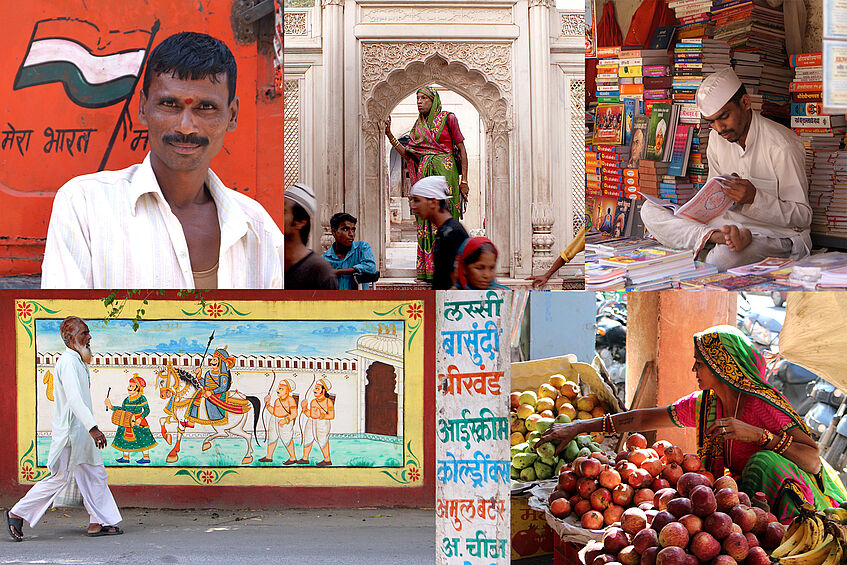Culture and Society of Modern South Asia (Master)

© Universität Wien / Institut für Südasien-, Tibet- und Buddhismuskunde
The interdisciplinary master’s programme in Culture and Society of Modern South Asia aims at equipping students with extensive interdisciplinary knowledge of the cultural, regional, linguistic and social diversity of the South Asian continent in the present, as well as of the historic developments that have shaped it since the beginning of the modern period. This also includes the acquisition of a critical understanding of the symbolic worlds, ways of actions and perceptions of different actors. Students enhance their linguistic competences in modern Indian languages (specifically Hindi and Nepali) that they acquired in previous studies and actively use them in communications, to deal with written sources and/or oral accounts from the modern media. This way, they expand their knowledge of the cultural and social processes in the modern and present period through primary materials.
Facts & Figures
- Students: n.a.
- Graduates in the last academic year: n.a.
- Number of semesters needed for graduation (median): n.a.
Data updated on: 03.12.2024
Attention
Instruction Language German
Please note that the instruction language of this programme is German. To start the degree programme, you need to hold a certificate of German proficiency on C1 level.
Admission Procedure
Information about the admission procedure
Information on Previous Studies:
In any case eligible degree programmes at the University of Vienna:
Study Programme
The master’s programme consists of modules covering the following subject areas: compulsory modules on modern South Asian society; basics of modern South Asian cultural and intellectual history; alternative compulsory module (A: cultural studies of modern South Asia in practice; or B: modern Indian language in practice); history of modern South Asia; alternative compulsory module (A: basics of contemporary South Asian cultures; B: South Asia in a global context); languages of modern South Asia in practice; and linguistic traditions of modern South Asia). In addition, students have to complete a research seminar for master’s students, write a master’s thesis and pass a master’s examination.
Five Concepts
which you will deal with during your studies:
- Hindi
- Nepali
- Modern Indian
- Conversion
- Sociality
... and many more.
Overview of the programme structure & topics
Here you find the current offer of courses for this programme to gain better insight into the topics and structure. For more information please click on the respective level.
After Graduation
Students directly experience the living culture of South Asia and develop practical intercultural competences. Graduates are qualified to pursue a career in the following occupational fields:
- university and non-university teaching and research institutions
- archives, museums, libraries
- media, publishers, public relations
- development cooperation
- diplomatic service, international organisations.
Graduates' Perspective on the Degree Programme
Graduates ...
- find employment within 2 months after graduation on average.
- earn an average of € 2,719 (women) and € 2,702 (men) gross per month within three years after graduation.
- work full time at a percentage of 68% (women) and 62% (men) within three years after graduation.
*You can find further information on career entry and career paths in the tracking of graduates "Arts and Humanities".
